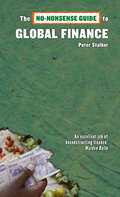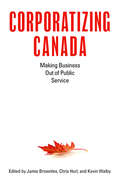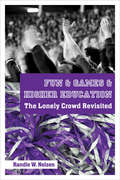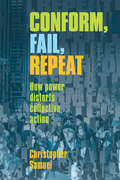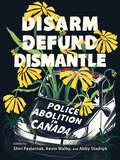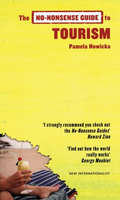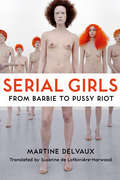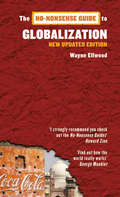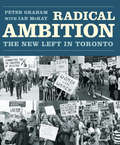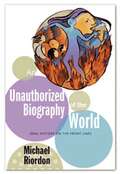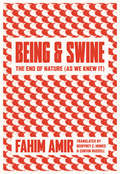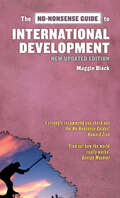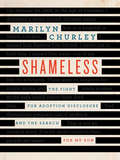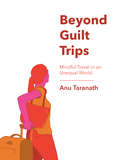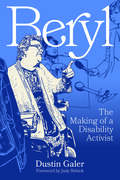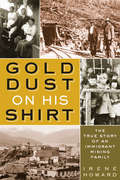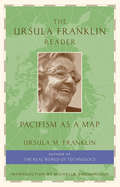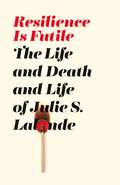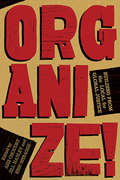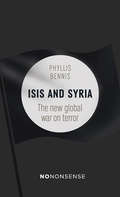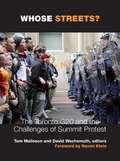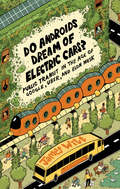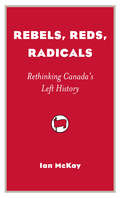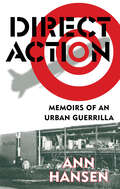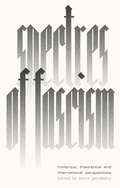- Table View
- List View
No-Nonsense Guide to Global Finance (No-Nonsense Guides #8)
by Peter Stalker"Meltdown," "crisis," "downturn," and the dreaded "R-word": recession. These words have migrated from business sections to headline news. From barter to coins, from the origins of banking to today's credit crunch, this highly topical book explores cash, borrowing, and lending, and delves into the dark side of the global financial system. But as we teeter on the brink of a global depression, space develops for new thinking. From doing away with tax havens, putting teeth into regulation, and taxing currency transactions, this book makes suggestions for a fresh start and argues that another (financial) world is possible.
Corporatizing Canada: Making Business out of Public Service
by Jamie Brownlee Chris Hurl Kevin WalbyFrom schools to hospitals, from utilities to food banks, over the past thirty years corporatization has transformed the public sector in Canada. Economic elites take control of public institutions and use business metrics to evaluate their performance, transforming public programs into corporate revenue streams. Senior managers use corporate methodology to set priorities in social services and create “market-friendly” public sector cultures. Even social activist organizations increasingly look and act like multinational corporations while non-governmental organizations pursue partnerships with the same corporations they ostensibly oppose. Corporatizing Canada critically examines how corporatization has been implemented in different ways across the Canadian public sector and warns us of the threat that neoliberal corporatization poses to democratic decision-making and the public at large.
Fun & Games & Higher Educatione’: The Lonely Crowd Revisited
by Randle W. NelsenFun & Games & Higher Education ranges from Wayne’s World to hot-rodding, from automobility to the popular phenomenon know as the tailgate party, from German sociologist George Simmel to Canadian Media Guru Marshall McLuhan–all in the interests in exploring North American obsession with play-and particularly the intersection between education, work, and leisure.
Conform, Fail, Repeat: How Power Distorts Collective Action
by Christopher SamuelAnti-globalization activists have done little to slow capitalism’s global march. Many of the gains made by decades of identity-based movements have been limited to privileged subgroups. The lesson of these movements is clear: struggle for change is essential, but the direction of change matters considerably. Like movements of the past, current social movements such as Black Lives Matter, Idle No More, and the growing anti-Trump movement, must navigate a path between reformism and radicalism, pragmatism and idealism, capture and independence. In Conform, Fail, Repeat, Christopher Samuel uses Pierre Bourdieu’s central “thinking tools” to show how power and domination force movements into a no-win choice between conformity and failure. With special attention to North American LGBTQ politics and the G20 protests in Toronto, Conform, Fail, Repeat shows how Bourdieu’s work can give movement observers as well as participants new tools for tracking and avoiding the pitfalls of conformity and failure.
Disarm, Defund, Dismantle: Police Abolition in Canada
by Shiri Pasternak Kevin Walby Abby StadnykCanadian laws are just, the police uphold the rule of law and treat everyone equally, and without the police, communities would descend into chaos and disorder. These entrenched myths, rooted in settler-colonial logic, work to obscure a hard truth: the police do not keep us safe. This edited collection brings together writing from a range of activists and scholars, whose words are rooted in experience and solidarity with those putting their lives on the line to fight for police abolition in Canada. Together, they imagine a different world—one in which police power is eroded and dissolved forever, one in which it is possible to respond to distress and harm with assistance and care.
No-Nonsense Guide to Tourism (No-Nonsense Guides #25)
by Pamela NowickaMany people like to take a break by exploring somewhere new, whether it’s with just a backpack or with a fleet of luggage. But there is more to a holiday that visiting “attractions,” sampling local foods, and napping in a hammock. Being a tourist is easy—tourism is complex. In this No-Nonsense Guide, Pamela Nowicka explores the third largest industry in the world (after oil and narcotics) and its profound economic, social, and environmental impacts. Taking the reader on a trip from the early days of travel to the first package tours and on to today’s mass tourism, she argues that without a greater commitment to equitable and sustainable practices, tourists of all stripes will continue to be part of the problem, not the solution.
Serial Girls: From Barbie to Pussy Riot
by Martine DelvauxEverywhere you look patriarchal society reduces women to a series of repeating symbols: serial girls. On TV and in film, on the internet and in magazines, pop culture and ancient architecture, serial girls are all around us, moving in perfect sync—as dolls, as dancers, as statues. From Tiller Girls to Barbie dolls, Playboy bunnies to Pussy Riot, Martine Delvaux produces a provocative analysis of the many gendered assumptions that underlie modern culture. Delvaux draws on the works of Barthes, Foucault, de Beauvoir, Woolf, and more to argue that serial girls are not just the ubiquitous symbols of patriarchal domination but also offer the possibility of liberation.
No-Nonsense Guide to Globalization, 3rd Edition (No-Nonsense Guides #12)
by Wayne EllwoodFully updated, this new edition of a best-selling No-Nonsense Guide examines the debt trap; the acceleration of neoliberalism and the 'free trade' model; competition for energy resources; the links between the "war on terror," the arms trade, and privatization; and the emergence of China and India as economic superpowers. Ellwood provides a full analysis of the financial crisis that began in 2007, and explores what happens when deregulation, speculation, and greed are given complete rein. In addition to his cogent analysis, Ellwood offers strategies for redesigning the global economy to better serve the public good.
Radical Ambition: The New Left in Toronto
by Peter GrahamWriting for Maclean’s magazine in 1965, Peter Gzowski saw something different about the new generation of the left. They were not the agrarian radicals of old. They did not meet in union halls. Nor were they like the Beatniks that Gzowski had rubbed shoulders with in college. “The radicals of the New Left … differ from their predecessors not only in the degree of their protest but in its kind. They are a new breed.” Members of the New Left placed the ideals of self-determination and community at the core of their politics. As with all leftists, they sought to transcend capitalism. But in contrast to older formations, New Leftists emphasized solidarity with national liberation movements challenging imperialism around the world. They took up organizational forms that anticipated—in their direct, grassroots, community-based democracy—the liberated world of the future. Radical Ambition is the first book to explore the history of this dynamic movement and reveal the substantial social changes it won for the people of Toronto.
An Unauthorized Biography of the World: Oral History on the Front Lines
by Michael RiordonAn Unauthorized Biography of the World explores the practice of engaged oral history: the difficult, sometimes dangerous work of recovering fragments of human story that have gone missing from the official versions. Michael Riordon has thirty years’ experience as a writer and broadcaster in the field. Readers will encounter a gallery of brave, passionate people who gather silenced voices and lost life stories. The canvas is broad, the stakes are high: the battles for First Nations lands in Canada; environmental justice in Chicago; genocide in Peru; homeless people organizing in Cleveland; September 11/01, and after, in New York City; gay survivors of electroshock in Britain; the struggle to preserve a people’s identity in Newfoundland; peasant resistance to a huge transnational gold mine in Turkey.
Being and Swine: The End of Nature (As We Knew It)
by Fahim AmirForget everything you think you know about nature. Fahim Amir’s award-winning book takes pure delight in posing unexpected questions: Are animals victims of human domination, or heroes of resistance? Is nature pristine and defenceless, or sentient and devious? Is being human really a prerequisite for being political? In a world where birds on Viagra punch above their weight and termites hijack the heating systems of major cities, animals can be recast as vigilantes, agitators, and public enemies in their own right. Under Amir’s magic spell, pigs transform from slaughterhouse innocents into rioting revolutionaries, pigeons from urban pests into unruly militants, honeybees from virtuous fuzzballs into shameless centrefold models for eco-capitalism. As paws, claws, talons, and hooves seize the means of production, Being and Swine spirals higher and higher into a heady thesis that becomes more convincing by the minute. At the heart of Amir’s writing is a deep optimism and bracingly fresh reading of Marxist, post-colonial, and feminist theory, building upon the radical scholarship of Donna J. Haraway and others. Contrarian, whip-smart, and wildly innovative, no other book will laugh at your convictions quite like this one.
No-Nonsense Guide to International Development, 2nd Edition (No-Nonsense Guides #17)
by Maggie Black“Overseas aid” and “international development” are catch-all terms that cover a multitude of activities - and abuses. Building dams in India, planting treesin Burkina Faso, and rescuing street children in Brazil are images of development with which we can all identify. But what few people realize is that the terms “aid” and “development” often mask confusion, contradiction, and even downright deceit. The updated version of 2002's best-selling No-Nonsense Guide to International Development explains what “development” actually is - and explores its political and economic roots in history. It shows what can happen in the name of development and argues for a more organic, social approach with those it seeks to serve as equal partners in the process.
Shameless: The Fight for Adoption Disclosure and the Search for My Son
by Marilyn ChurleyIn the late 1960s, at the age of eighteen and living far from home amidst the thriving counterculture of Ottawa, Marilyn Churley got pregnant. Like thousands of other women of the time she kept the event a secret. Faced with few options, she gave the baby up for adoption. Over twenty years later, as the Ontario NDP government’s minister responsible for all birth, death, and adoption records, including those of her own child, Churley found herself in a surprising and powerful position – fully engaged in the long and difficult battle to reform adoption disclosure laws and find her son. Both a personal and political story, Shameless is a powerful memoir about a mother’s struggle with loss, love, secrets, and lies – and an adoption system shrouded in shame.
Beyond Guilt Trips: Mindful Travel in an Unequal World
by Anu TaranathEvery year, hundreds of thousands of young people pack their bags to study or volunteer abroad. Well-intentioned and curious Westerners—brought up to believe that international travel broadens our horizons—travel to low-income countries to learn about people and cultures different from their own. But while travel abroad can provide much-needed perspective, it can also be deeply unsettling, confusing, and discomforting. Travelers can find themselves unsure about how to think or speak about the differences in race or culture they find, even though these differences might have fueled their desire to travel in the first place. Beyond Guilt Trips helps us to unpack our Western baggage, so that we are better able to understand our uncomfortable feelings about who we are, where we come from, and how much we have. Through engaging personal travel stories and thought-provoking questions about the ethics and politics of our travel, Beyond Guilt Trips shows readers ways to grapple with their discomfort and navigate differences through accountability and connection.
Beryl: The Making of a Disability Activist
by Dustin GalerBeryl Potter was a reserved working-class mother of three living a decent life, or so it seemed, when a harmless slip and fall marked the unravelling of everything that she had known about herself and the world around her. Over the course of six years, she endured unimaginable pain. As doctors raced to save her life, her limbs and eyesight were taken from her one by one. In the span of a few years, she lost nearly half her body, her financial security, her home, her husband, and any semblance of a recognizable future. A survivor of more than one hundred surgeries, a dangerous opioid addiction, and multiple suicide attempts, Beryl Potter devoted herself to bettering the lives of other people with disabilities and made a tremendous contribution to disability awareness from the 1970s to 1990s. In this unparalleled biography, Dustin Galer demonstrates how Beryl Potter seemed to crack the code of the social system that oppressed her. By wading into the weeds of her complicated life before and after her accident, Galer leaves readers with a complex portrait of a woman who defied and challenged gender and disability norms of her time, paving the way for disability justice.
Gold Dust On His Shirt: The True Story of an Immigrant Mining Family
by Irene HowardGold Dust on His Shirt is an evocative telling of the experience of a Scandinavian immigrant family of hard-rock miners at the turn of the century and up to World War II. Based on fascinating historical research, these are tales of arriving in ‘Amerika,’ blasting the Grand Trunk Pacific railway, work in the mines, and domestic life and labour struggles in company towns throughout British Columbia. Part family history, part economic and social history, Gold Dust on His Shirt is an intriguing look at life on the industrial frontier, the world of immigrant workers and the rise of unions such as the Wobblies. This remarkable and provocative tale of a family, region and era references a number of broader social and political issues. Born in Prince Rupert, British Columbia, to Scandinavian parents, Irene Howard has devoted her writing career to combining her interest in labour and immigrant history with her love of literature. She has been an English instructor and has broadcast talks for the CBC and written articles and essays for Canadian magazines and journals. She is the author of several books, including The Struggle for Social Justice in British Columbia: Helena Gutteridge, the Unknown Reformer, which in 1993 won the University of British Columbia Silver Medal for Canadian Biography and was shortlisted for a City of Vancouver Book Award and the Hubert Evans Non-Fiction Prize.
The Ursula Franklin Reader: Pacifism as a Map
by Ursula FranklinFeminist, educator, Quaker, and physicist, Ursula Franklin has long been considered one of Canada’s foremost advocates and practitioners of pacifism. The Ursula Franklin Reader: Pacifism as a Map is a comprehensive collection of her work, and demonstrates subtle, yet critical, linkages across a range of subjects: the pursuit of peace and social justice, theology, feminism, environmental protection, education, government, and citizen activism. This thoughtful collection, drawn from more than four decades of research and teaching, brings readers into an intimate discussion with Franklin, and makes a passionate case for how to build a society centered around peace.
Resilience Is Futile: The Life and Death and Life of Julie S. Lalonde
by Julie S. LalondeFor over a decade, Julie Lalonde, an award-winning advocate for women’s rights, kept a secret. She crisscrossed the country, denouncing violence against women and giving hundreds of media interviews along the way. Her work made national headlines for challenging universities and taking on Canada’s top military brass. Appearing fearless on the surface, Julie met every interview and event with the same fear in her gut: was he there? Fleeing intimate partner violence at age 20, Julie was stalked by her ex-partner for over ten years, rarely mentioning it to friends, let alone addressing it publicly. The contrast between her public career as a brave champion for women with her own private life of violence and fear meant a shaky and exhausting balancing act. Resilience sounds like a positive thing, so why do we often use it against women? Tenacity and bravery might help us survive unimaginable horrors, but where are the spaces for anger and vulnerability? Resilience is Futile is a story of survival, courage and ultimately, hope. But it’s also a challenge to the ways we understand trauma and resilience. It’s the story of one survivor who won’t give up and refuses to shut up.
Organize!: Building from the Local for Global Justice
by Aziz Choudry Jill HanleyHow do we organize for progressive social change in an era of unprecedented economic, social, and ecological crises? How do political activists build power and critical analysis into their daily work for change? Grounded in struggles in Canada, the USA, and Aotearoa/New Zealand, as well as transnational activist networks, Organize! links local organizing with global struggles for social justice. From organizing immigrant workers to mobilizing psychiatric survivors, from arts and activism for Palestine to support for Indigenous Peoples, activists, academics, and artists reflect on the tensions and gains inherent in a diverse range of organizing contexts and practices. Organize! encourages us to use history to shed light on contemporary injustices and how they can be overcome.
NoNonsense ISIS and Syria: The new global war on terror (No-Nonsense Guides #1)
by Phyllis BennisFrom its sudden emergence as a military force to be reckoned with in Syria and Iraq in June 2014 through its YouTube executions of hostages to its atrocious attacks in Paris in November 2015, the movement variously known as ISIS, Islamic State, and Daesh has captured the world’s horrified attention. Where did it come from and how on earth should we respond? This NoNonsense book places ISIS in the broader context of the US-led ‘war on terror’ from the Bush-Blair invasion of Iraq to Obama’s drone attacks. Bennis makes a strong case for responses that build peace and justice rather than feeding the cycle of violence and terror.
Whose Streets?: The Toronto G20 and the Challenges of Summit Protest
by Tom Malleson and David WachsmuthIn June 2010 activists opposing the G20 meeting held in Toronto were greeted with brutal and arbitrary state violence. Whose Streets? is a combination of testimonials from the front lines and analyses of the broader context, an account that both reflects critically on what occurred in Toronto and looks ahead to further building our capacity for resistance. Featuring reflections from activists who helped organize the mobilizations, demonstrators and passersby who were arbitrarily arrested and detained, and scholars committed to the theory and practice of confronting neoliberal capitalism, the collection balances critical perspective with on-the-street intensity. It offers vital insight for activists on how local organizing and global activism can come together.
Do Androids Dream of Electric Cars?: Public Transit in the Age of Google, Uber, and Elon Musk
by James WiltPublic transportation is in crisis. Through an assessment of the history of automobility in North America, the “three revolutions” in automotive transportation, as well as the current work of committed people advocating for a different way forward, James Wilt imagines what public transit should look like in order to be green and equitable. Wilt considers environment and climate change, economic and racial inequality, urban density, accessibility and safety, work and labour unions, privacy and control of personal data, as well as the importance of public and democratic decision-making. Based on interviews with more than forty experts, including community activists, academics, transit planners, authors, and journalists, Do Androids Dream of Electric Cars? explores our ability to exert power over how cities are built and for whom.
Rebels, Reds, Radicals: Rethinking Canada’s Left History (Provocations Ser.)
by Ian McKayIn this brilliant and thoroughly engaging work Ian McKay sets out to revamp the history of Canadian socialism. Drawing on models of left politics in Marx and Gramsci, he outlines a fresh agenda for exploration of the Canadian left. In rejecting the usual paths of sectarian or sentimental histories, McKay draws on contemporary cultural theory to argue for an inventive strategy of “reconnaissance.” This important, groundbreaking work combines the highest standards of scholarship, and a broad knowledge of current debates in the field. Rebels, Reds, Radicals is the introduction to McKay’s definitive multi-volume work on the history of Canadian socialism (volume one, Reasoning Otherwise: Leftists and the People’s Enlightenment in Canada, 1890-1920 is now available).
Direct Action: Memoirs of an Urban Guerrilla
by Ann HansenAnn Hansen stood trial as one of the so-called “Squamish Five.” Sentenced to life in prison, she served seven years. Now she tells her story for the first time. Direct Action captures the excitement and indignation of the counterculture of the early ’80s. Missile tests were fuelling a new arms race. Reckless megaprojects threatened the global environment. Alienation, punk rock, and militancy were on the rise. Hansen and her fellow urban guerrillas believed that sabotaging government and corporate property could help turn things around. To prove their point, they bombed the Litton Systems plant in Toronto, where components for Cruise Missiles were being made. Hansen’s book poses unresolved ethical dilemmas. In light of the recent explosion of anti-globalization protests, Direct Action mirrors the resurgence of militant activity around the world.
Spectres of Fascism: Historical, Theoretical, and International Perspectives
by Samir GandeshaConcerns over the rise of fascism have been preoccupied with the Trump presidency and the Brexit vote in the UK, yet, globally, we are witnessing a turn towards anti-democratic and illiberal forces. From the tragic denouement of the Egyptian Revolution to the consolidation of the so-called Gujarat Model in India under the leadership of Prime Minister Narendra Modi and the consolidation of the power of Turkish President Recep Tayyip Erdogan, to the recent election of Jair Bolsonaro in Brazil, fascist ideology, aesthetics, and personalities appear across the globe. Spectres of Fascism makes a significant contribution to the unfolding discussion on whether what we are witnessing today is best understood as a return to classic twentieth-century fascism or some species of what has been called “post-fascism.” Applying a uniquely global perspective, it combines analyses of historical contexts, theoretical approaches, and contemporary geopolitics.
